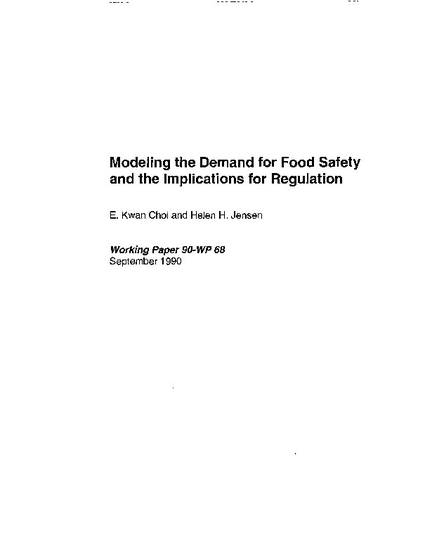
The modern theory of demand which underlies much of economic analysis of consumer behavior is based on the premise that consumption goods are pure and do not involve risks. However, that is clearly not the case where concerns about food safety are involved. The awareness of linkages between consumption of foods and adverse health effects indicates the need for a new framework for investigating demand for food and food safety, and for guiding the appropriate government response to achieve optimal regulation of food safety levels. We develop such a framework and show that when safety is endogenous to the consumer's decision over a consumption bundle, perfect safety is not optimal.
There are several implications of the model. Empirical analysis based on conventional demand theory may lack predictive power due to model misspecification and the unobserved survival probability function. Furthermore, if markets are perfectly competitive and consumers accurately informed about safety risk, there is no need for government regulation. However, when markets are not perfectly competitive, and answer is less clear-cut. And, risk differentiation may become a new basis for acquiring and exercising market power.
This working paper was published as Choi, E. Kwan and Helen H. Jensesn, "Modeling the Effect of Risk on Food Demand and the Implications for Regulation" in Economics of Food Safety, edited by Julie A. Caswell (Dordrecht, The Netherlands: Springer Netherlands, 1991): 29–44, doi:10.1007/978-94-011-7076-5_2.
Available at: http://works.bepress.com/ekwan-choi/2/
